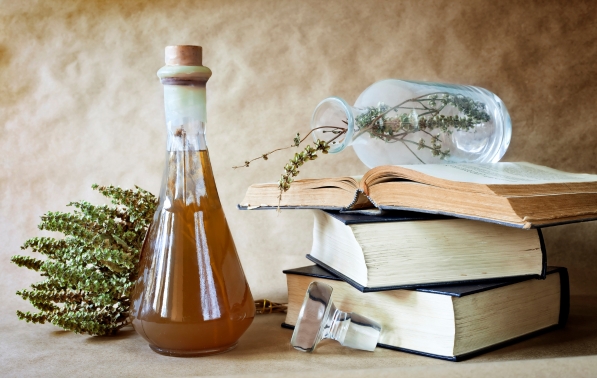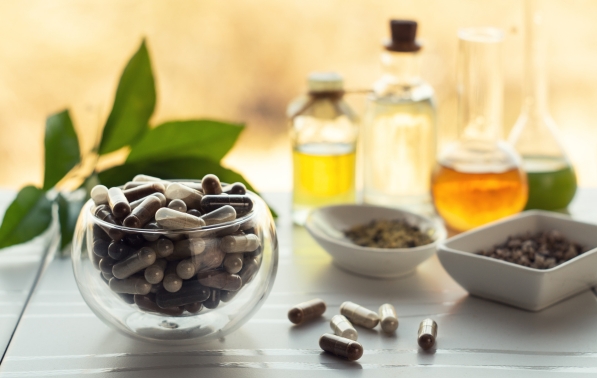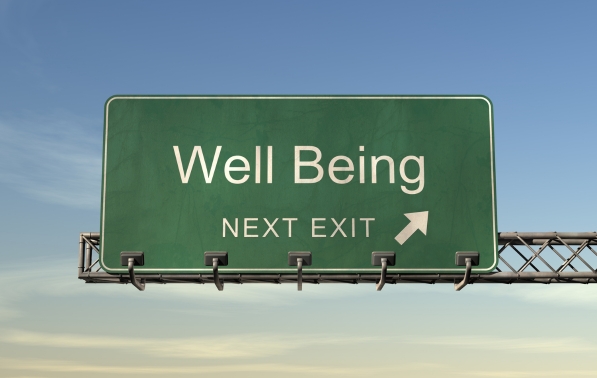Wellness Guide: How to Find Quality Herbal Supplements
March 04, 2024 | 0 comments
by Wendy Wilson, Master Herbalist
Herb Profiles, Research Reports, Wellness Guides
In today's health and wellness market, navigating through the myriad of supplement options can feel like embarking on a daunting journey. With shelves stacked high and online stores brimming with choices, how do you ensure you're selecting supplements that truly deliver high-quality ingredients?
We've compiled essential questions to ensure that every purchase you make is a step toward enhancing your well-being. Whether you're a seasoned health enthusiast or just beginning your journey in wellness, here are 9 questions to empower you to make informed choices about your health.
1. Are the herbal ingredients organic or wild-crafted?
Certified organic or wild-crafted means that the herbal ingredients were grown and harvested without pesticides, herbicides, synthetic fertilizers, or ethylene oxide gas. These chemicals are nasty for your nervous system. Ethylene oxide gas promotes cancer – it is a mutagen and can cause birth defects. Wild-crafted herbs are grown wild and harvested without chemicals. This also implies that the herb was grown away from toxic areas such as landfills or highways. If you are having trouble finding this information, reach out to the supplier for insight.
2. Are any of the herbs from overseas?
Bulk herbs imported from overseas are cheaper for the manufacturer and cost approximately $10.00 per pound compared to U.S.-certified organic herbs (grown to Tilth Standards) which can range from $50.00 to $100.00 per pound. Unless the herbs are certified organic, these herbs are not guaranteed to be chemical-free. Many imported herbs are grown near toxic waste facilities and can come over with E. Coli on them. Therefore, all bulk herbs are required to be fumigated and irradiated by the Department of Agriculture when they arrive on the U.S. dock. We recommend finding out what region overseas herbs are grown and harvest in. You should especially try to avoid herbs grown and harvested in China, Eastern Europe, Egypt, Mexico, and Spain.
3. & 4. Are the imported herbs in bulk or finished form? Does the overseas supplier guarantee that the ingredients in the finished form of herbal product are certified organic?
If the manufacturer imports finished herbal products (already packaged and ready for sale) from overseas, it’s important to find out if the herbal ingredients are certified organic. To be imported into the US, raw materials have to be treated with chemicals to deter pests. Finished form herbal products can be considered safer but quality can vary.
5. Is heat used in the manufacturing or packaging process?
Herbal products treated with heat (especially in manufacturing) will lose plant nutrition, will not be as potent, and can become an inorganic supplement. Inorganic supplements (especially those made with petrochemicals) will draw from your body’s nutritional stores in an attempt to assimilate the supplement. Instead of providing nutrition to your body.
Avoid processes that use artificial extraction. This process produces heat, sacrifices plant nutrition, and produces a weak product. Also, avoid processes that add cooked ingredients. Cooked ingredients add only bulk to the product, and the plant nutrition is seriously depleted.
Most large manufacturing plants use packaging machinery that can produce heavy bursts of heat. Herbal products exposed to high heat sources (no matter how brief) have the potential to become inferior.
6. How long are the herbal liquids (extracts, tinctures) aged?
When it comes to herbal liquids, known as extracts or tinctures, you want the old stuff (aged formula). The longer the aging, the more potent the formula. The aging process must be as natural as possible. You do not want products subjected to forced or artificial aging. Most large herb manufacturers will use an extraction process similar to processing pressure-treated lumber. This process forces plant nutrition from the herb with pressure. It is a process that can make thousands of gallons of herbal liquids in a matter of hours, but plant nutrition is exposed to heat which lowers nutrition and potency. Natural aging of herb liquids takes a minimum of 30 days.
A natural aging process, similar to aging wine, takes a little longer but produces a superior product. All the plant nutrition is intact. No heat or cooked ingredients are added to this process. The best products will be aged at least 30 days or longer and are cold pressed – no heat.
7. Are flavorings added to the herbal products?
Some manufacturers will add flavorings to their products for various reasons. They can be used to help preserve the product or make it more palatable. The reason to be concerned is that flavorings can hide the true ingredients in the product. Each herb has its distinctive signature taste.
For instance, lobelia (known to help with respiratory conditions) is bitter and will leave a scratchy feeling on the back of your throat for a few seconds. Flavorings can hide the fact that lobelia isn’t in the formula at all even if it is listed on the ingredient panel. Also, when flavorings are added to an herbal formula, they can weaken the herb’s potency. We say, go with what nature intended. Nature knows best. It is best to be familiar with each herb and its signature taste.
8. (For herbal liquids, extracts, and tinctures) What is the percentage ratio of herb to catalyst?
The herb-to-catalyst ratio is very important and it will let you see just how cheap the manufacturer is on herbal ingredients. You want an herb catalyst ratio of 1:1 or 1:2. This means the manufacturer is generous on the herbal ingredients and isn’t using a lot of fillers or a lot of alcohol to extend batch volume.
For herbal liquids, the herb should soak (age) in a catalyst of alcohol or vinegar, and sometimes both in the same batch. Alcohol and vinegar can naturally extract more plant nutrients out of the herb than glycerin. A good herb-to-catalyst ratio is three parts herb to four parts catalyst. The more herbs in the mix, the stronger the formula will be. You need quality herbs, and enough of them, to produce a superior formula. The world's high-pressure extraction processes cannot make up for the lack of ingredients and the appropriate aging time.
9. Are the herbal products made and supervised by an herbalist or natural pharmacist?
Some of the largest pharmaceutical companies are breaking into the botanical market. Individuals who have no practical experience with herbal therapeutics will lack the knowledge of making superior herbal formulas, recommending herbal doses, and using herbs in combination with other herbs for maximum results. It’s like having a car mechanic show up to perform your heart surgery. When it comes to who is making your botanical products, be selective.
As you embark on your journey toward optimal health and wellness, remember that knowledge is your greatest ally. Empowered with the right questions, you can determine the right herbal supplements for you with confidence, ensuring that every product you choose is of the highest quality. Apothecary Herbs Inc. specializes in immune support, metabolic support, and toxin removal herb formulas. Request a Free Catalog by calling 866-229-3663 or going online at www.thepowerherbs.com.
*The information contained herein is not intended to diagnose, treat, prevent, or cure disease. Seek medical advice from a licensed medical physician before using any product or therapy.*



